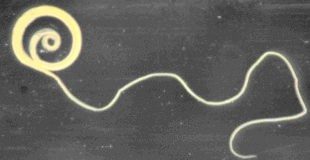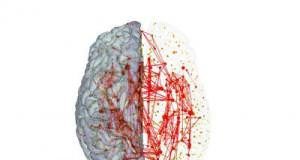Silent Stroke Can Cause Parkinson’s Disease
Scientists at The University of Manchester have for the first time identified why a patient who appears outwardly healthy may develop Parkinson's disease.
Whilst conditions such as a severe stroke have been linked to the disease, for many sufferers the tremors and other symptoms of Parkinson's disease can appear to come out of the blue. Researchers at the university's Faculty of Life Sciences have now discovered that a small stroke, also known as a silent stroke, can cause Parkinson's disease. Their findings have been published in the journal Brain, Behavior, and Immunity.
Can Worms Alleviate Autism?
A growing body of evidence suggests that in some patients, increased inflammation contributes to autistic behaviors. Now, a Phase I clinical trial is under way to measure the effects of infecting autistic patients with a non-pathogenic parasitic worm. Scientists at Montefiore Medical Center at the Albert Einstein College of Medicine in New York and biotech company Coronado Biosciences will test the hypothesis that treating these patients with Trichuris suis, a non-pathogenic parasitic pig whipworm, will dampen their immune responses and ameliorate repetitive and irritable behaviors.
Mini-Strokes Leave ‘Hidden’ Brain Damage
Each year, approximately 150,000 Canadians have a transient ischemic attack (TIA), sometimes known as a mini-stroke. New research published January 28 in Stroke, the journal of the American Heart Association shows these attacks may not be transient at all. They in fact create lasting damage to the brain.
Polyphenols and Polyunsaturated Fatty Acids Boost the Birth of New Neurons,...
Universitat Autònoma de Barcelona (UAB) researchers have confirmed that a diet rich in polyphenols and polyunsaturated fatty acids, patented as an LMN diet, helps boost the production of the brain's stem cells -neurogenesis- and strengthens their differentiation in different types of neuron cells. The research revealed that mice fed...
Daily Dose Of Beet Juice Promotes Brain Health In Older Adults
Researchers for the first time have shown that drinking beet juice can increase blood flow to the brain in older adults -- a finding that could hold great potential for combating the progression of dementia. The research findings are available online in Nitric Oxide: Biology and Chemistry, the peer-reviewed journal of the Nitric Oxide Society and will be available in print soon.
Highways Of The Brain: High-Cost And High-Capacity
A new study proposes a communication routing strategy for the brain that mimics the American highway system, with the bulk of the traffic leaving the local and feeder neural pathways to spend as much time as possible on the longer, higher-capacity passages through an influential network of hubs, the so-called rich club.
Brain May Age Faster In People Whose Hearts Pump Less Blood
Keep your heart healthy and you may slow down the aging of your brain, according to a new study reported in Circulation: Journal of the American Heart Association. In the study, people whose hearts pumped less blood had brains that appeared older than the brains of those whose hearts pumped more blood.
Medications For Insomnia, Allergies And Incontinence Shown To Cause Cognitive Impairment
Drugs commonly taken for a variety of common medical conditions including insomnia, allergies, or incontinence negatively affect the brain causing long-term cognitive impairment in older African-Americans, according to a study appearing in the July 13, 2010 print issue of Neurology, the medical journal of the American Academy of Neurology.
Chewing Ability Linked To Reduced Dementia Risk
Can you bite into an apple? If so, you are more likely to maintain mental abilities, according to new research from Karolinska Institutet in Sweden. The population is aging, and the older we become the more likely it is that we risk deterioration of our cognitive functions, such as memory, decision-making and problem solving. Research indicates several possible contributors to these changes, with several studies demonstrating an association between not having teeth and loss of cognitive...
Signs of Aging May Be Linked to Undetected Blocked Brain Blood...
Many common signs of aging, such as shaking hands, stooped posture and walking slower, may be due to tiny blocked vessels in the brain...
This Is Your Brain On Sugar: Study In Rats Shows High-Fructose...
Attention, college students cramming between midterms and finals: Binging on soda and sweets for as little as six weeks may make you stupid. A new UCLA rat study is the first to show how a diet steadily high in fructose slows the brain, hampering memory and learning -- and how omega-3 fatty acids can counteract the disruption. The peer-reviewed Journal of Physiology publishes the findings in its May 15 edition.
Mind-Altering Microbes: Probiotic Bacteria May Lessen Anxiety and Depression
Probiotic bacteria have the potential to alter brain neurochemistry and treat anxiety and depression-related disorders according to research published in the Proceedings of the...

















